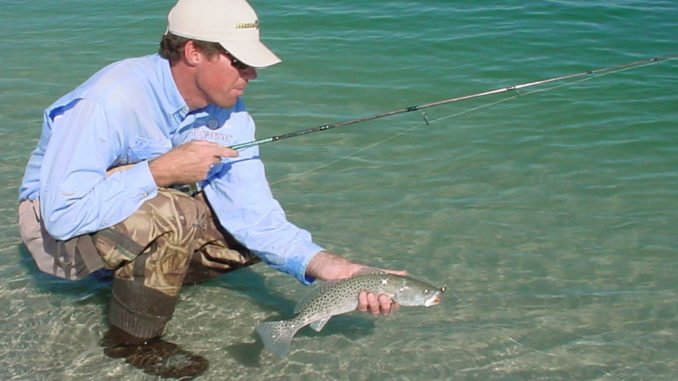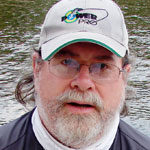
Recreational Fishing Alliance cries foul over closure
Fishermen heading to the coast this month will find regulations on two of their favorite fish much different.
As of Oct. 5, the N.C. Division of Marine Fisheries raised the minimum size for speckled trout caught in state waters from 12 to 14 inches.
Meanwhile, federal fisheries managers closed the black sea bass fishery in federal waters (3 to 200 miles offshore) from Cape Hatteras north.
A 2009 stock assessment determined that spotted seatrout are overfished in North Carolina. The increased size limit is needed to allow more female fish to spawn in an effort to restore the stock to a healthy population level.The change applies to both commercial and recreational fisheries. A 10-fish recreational bag limit will remain in place.
Research shows that only about 89 percent of female spotted seatrout are reproductively mature at 12 inches, but 98 percent of female spotted seatrout have reached reproductive maturity at 14 inches.
The N.C. Division of Marine Fisheries is working with a Spotted Seatrout Advisory Committee to develop a fishery management plan for the species. The management plan will recommend permanent rules to address issues pertaining to the spotted seatrout fishery.
Due to overharvest of the species, NOAA Fisheries has closed the fishery in federal waters north of Cape Hatteras for 180 days.
In the notification of the closure, the reasoning given was a response to recent landings data that showed recreational fishermen may catch more than double their annual quota by the end of the year. NOAA landings data and scientific analyses show recreational fishermen have reached their quota and could exceed their 1.14 million pound harvest limit by as much as 84 to 225 percent if the recreational fishery is not closed.
An independent body of federal and university scientists recently determined that the black sea bass stock has been rebuilt. However, both the scientists and the Science and Statistical Committee of the Mid-Atlantic Fishery Management Council (MAFMC) have cautioned against increasing fishing of this stock. Their reasons include the complex and poorly understood reproductive cycle, plus limited information on life span and important habitats for the species. The MAFMC recommends catch limits for black sea bass in federal waters.
Meanwhile, the Recreational Fishing Alliance said it is exploring legal options to block the shutdown.
Jim Donofrio, the RFA’s executive director, calll the move “absolutely unprecedented.
“It’s abuse on the part of the federal government to use this data for a complete shutdown,” he said. “NOAA has really showed their hand on this decision, making it quite clear of their disdain for our recreational industry.”
The RFA contends the data used by NOAA to justifythe closure is “fatally flawed.”




Be the first to comment